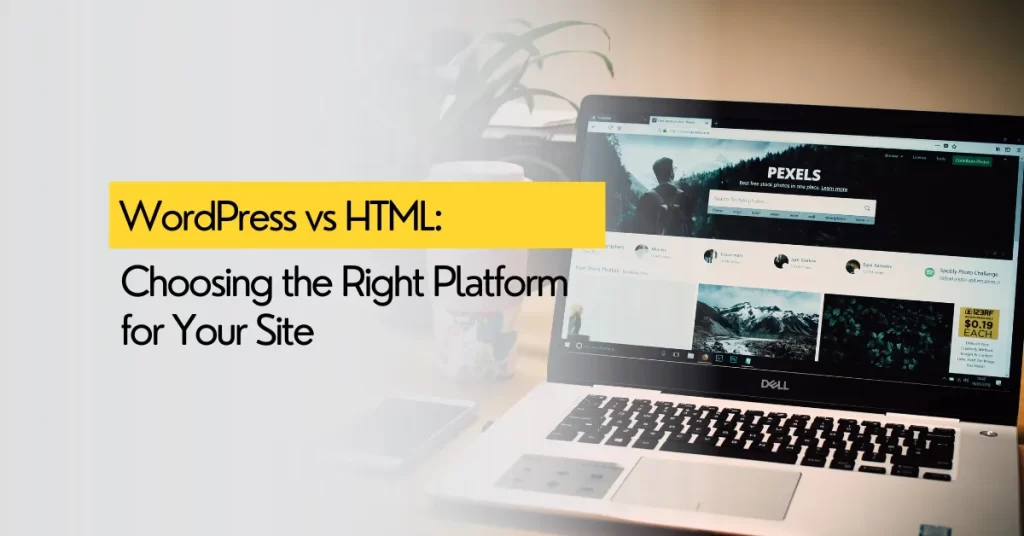
Choosing the right platform for your website is a critical decision that can significantly impact your online presence. In the digital realm, two of the most popular options are WordPress and HTML. Each comes with its own set of advantages and disadvantages, choosing between them a crucial one.
WordPress, a versatile content management system, is renowned for its user-friendly interface and a vast array of themes and plugins that simplify website creation and customization. On the other hand, HTML offers complete control over your site’s code, allowing for intricate design and tailored functionality.
In this comprehensive guide, we will delve into the intricacies of WordPress and HTML, helping you make an informed decision. We’ll explore the pros and cons of each platform, consider your specific needs, and offer guidance on which one aligns best with your website goals. Whether you’re a novice looking for simplicity or a coding enthusiast seeking full creative control, this comparison will help you navigate the WordPress vs. HTML debate and choose the ideal platform to bring your website vision to life.
WP, a renowned Content Management System (CMS), empowers users to effortlessly create, oversee, and refine website content. Its standout feature? Zero coding expertise is required to make it accessible to all. You can craft various types of WordPress sites tailored to your business needs, be it blogs, e-commerce, portfolios, or corporate pages. This versatility ranks WordPress among the top CMS platforms globally. When weighing WordPress against HTML, this ease of use stands as the pivotal factor, as it facilitates the development of various website types, ensuring your online presence aligns seamlessly with your objectives.
You may note that there are two different WordPress platforms: WordPress.org and WordPress.com. WordPress.org is an open-source CMS. Here, you may download the software and find plenty of free plugins and themes. Websites created using this platform can freely use a custom domain and sign up for a hosting service.
HTML or Hyper-Text Markup Language is a markup language that uses tags to classify elements on a website page. It provides the site’s basic structure; it is used alongside CSS and JavaScript for building websites. CSS controls the content’s layout and format, basically, how the content is visually presented to the users. Javascript makes the website interactive, and the various content elements in response to user action.
HTML and CSS are not programming languages. They provide page content structure and style information. JavaScript is a logic-based programming language.
Now, let us explore the difference between HTML and WordPress.
Now, let us have a look at the advantages of WordPress over HTML.
Deciding between WordPress and HTML will depend on what your main goal is. WordPress is a perfect pick if you want to expand your site by adding content regularly. Also, if you want to grow your business website and constantly update it, then WordPress is better. However, if your site requires no updates, regular changes, or any additional content, HTML is a better choice as it will make your website perform faster.
Now that you have a fair idea about both platforms, making a choice between WordPress and HTML will be easier. For any technical assistance, you may get in touch with us at Digital Tokri, India’s emerging digital marketing company.
 5 Best Wayback Machine Alternatives »
5 Best Wayback Machine Alternatives »
© Digital Tokri (Ira Digital Services). All rights reserved.